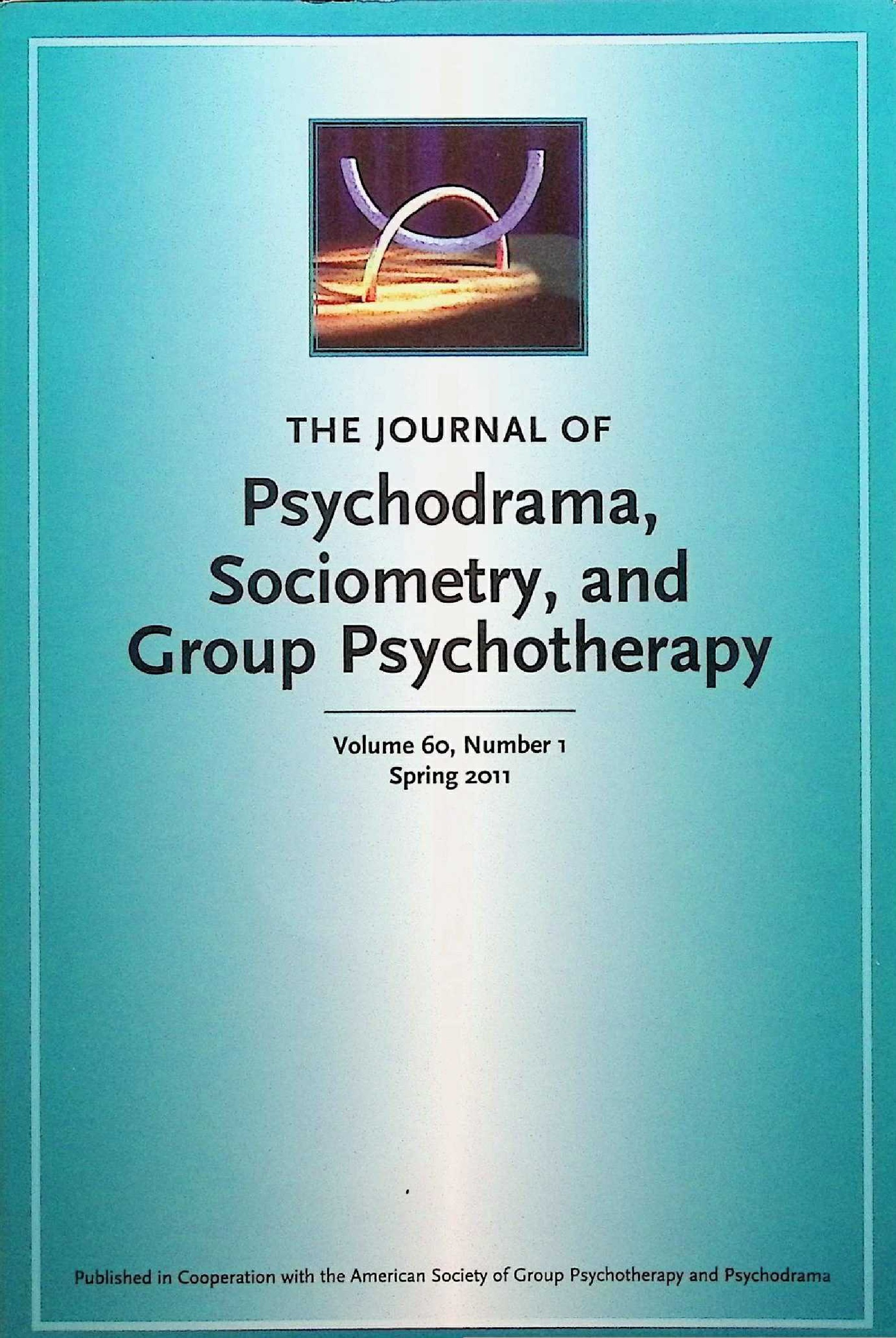Psychodrama and the Future of the Social Sciences
Keywords:
psychodrama, social sciencesAbstract
This article originally appeared in the journal Group Psychotherapy and Psychodrama in 1974, just after the death of Jonathan's father.
The article provides a brilliantly written brief history of the historical
development of the social sciences, placing psychodrama within a phenomenological epistemology, which is interested more "in the essence of psychical phenomenon, and not in the facts purely as such." Psychodrama is interested in working with the "essence of perception," the author writes. "The person stands at the center of his intuited senses, the nucleus of his perceived world, about which revolves his social atom and his psychodramatic life-world." The author's thesis is that psychodramatic theory and practice represent a significant bridge between humanistic and behavioristic strategies in social sciences, then he boldly states that "it is the only bridge of this type extant in human society today." Even 37 years later, this article from the ASGPP Archive is significant today in its implications for the future of psychodrama and sociometry in social
science theory, and it influences how we observe and participate together at a time when psychodramatic and sociometric theory and practice are needed more than ever.—Adam M. Barcroft
References
Aristotle. The Basics of Aristotle, New York, Random House, 1941.
Berne, E., The American Journal of Psychiatry, 126:10, April, 1970.
Dallery, Arleen B., trans., "An Unpublished Text by Maurice Merleau-Ponty," in The
Primacy of Perception, James M. Edie, ed., Evanston, Ill., Northwestern University Press, 1964.
Diesing, P., Patterns of Discovery in the Social Sciences, New York, Aldine Press, 1971. Ferster, C. B., "Reinforcement and Punishment in the Control of Human Behavior by
Social Agencies," in Experiments in Behavior Therapy, H. J. Eysenck, ed., London, Pergamon Press, 1964.
Festinger, L., Schacter, S., and Back, K., Social Pressures in Informal Groups, Stanford,
Calif., Stanford University Press, 1950.
Haldane and Ross, trans., The Philosophy of Descartes, London, Cambridge University
Press, 1970.
Husserl, E., The Crisis of the European Sciences.
Kockelmans, Joseph J., ed., Phenomenology, New York, Doubleday, 1969.
Moreno, J. L., Der Neue Daimon, Vienna, January, 1919.
Moreno, J. L., "Psychological Organization of Groups in the Community," Yearbook of
Mental Deficiency, Boston, 1933.
Moreno, J. L., Who Shall Survive? First Edition, Beacon, N.Y., Beacon House, 1934.
Moreno, J. L., The Words of the Father, Beacon, N.Y., Beacon House, 1941.
Moreno, J. L., Sociometry, Experimental Method and the Science of Society, Beacon, N.Y.,
Beacon House, 1951.
Moreno, J. L., "Preludes to My Autobiography," Who Shall Survive? Second Edition,
Beacon, N.Y., Beacon House, 1953.
Moreno, J. L., Psychodrama, Volume I, Beacon, N.Y., Beacon House, 1964.
Northway, Mary L., A Primer of Sociometry, Toronto, University of Toronto Press, 1952. Piccone, Paul, "Phenomenological Marxism," in Towards a New Marxism, St. Louis,
Missouri, Telos Press, 1973.
Poole, R., Towards Deep Subjectivity, New York, Harper & Row, 1971.
Popper, K. R., Conjectures and Refutations: The Growth of Scientific Knowledge, New York,
Harper & Row, 1968.
Redfield, R., The Little Community, Chicago, University of Chicago Press, 1967.
Schutz, W., Here Comes Everybody, New York, Harper & Row, 1971.
Spiegelberg, Herbert, "The Relevance of Phenomenological Philosophy for Psychology,” in Lee & Mandelbaum, Phenomenology and Existentialism, Baltimore, Md., Johns Hopkins University Press, 1967.
Watson, J. B., The Ways of Behaviorism, New York, W. W. Norton, 1928.
White, L. A., The Science of Culture, London, Farrar, Straus & Giroux, 1949.
Wolpe, J., "Reciprocal Inhibition as the Main Basis of Psychotherapeutic Effects,” in
Behavior Therapy and the Neurosis, E. H. Eysenck, ed., London, Pergamon Press, i960.
Downloads
Published
Issue
Section
License
Copyright (c) 2025 Journal of Psychodrama, Sociometry, and Group Psychotherapy

This work is licensed under a Creative Commons Attribution 4.0 International License.
